Discover ADHD Aha!
ADHD Aha!

ADHD Aha!
Author: Understood.org, Laura Key
Subscribed: 743Played: 13,638Subscribe
Share
Description
Listen to people share candid stories about the moment it clicked that they have ADHD. Host Laura Key, who’s had her own ADHD “aha” moment, chats with guests about common topics like ADHD and shame, mental health challenges, and more. Through heartfelt interviews, listeners learn about the unexpected, emotional, and even funny ways ADHD symptoms surface for kids and adults.
124 Episodes
Reverse
Debbie Reber — author, podcast host, and founder of Tilt Parenting — shares her unexpected journey of discovering her ADHD as an adult. She talks about the imposter syndrome that came with it, especially after years of writing about executive function and advocating for neurodivergent kids.Debbie explains how being extremely organized her whole life — hacking her ADHD without realizing it — kept her from seeing the signs sooner. She reflects on believing she “should” be someone who has natural balance, feels accomplished every day, and can simply unwind at night.She also opens up about growing up as the class clown, being told she was too loud, and how therapy is helping her untangle those early messages and better understand herself.For more on this topic: ADHD and imposter syndrome in womenPersonal story: What I do when imposter syndrome creeps in Check out Debbie’s books, including Differently Wired: The Parent’s Guide to Raising an Atypical ChildFor a transcript and more resources, visit ADHD Aha! on Understood.org. You can also email us at adhdaha@understood.org.
ADHD Unstuck is a free, self-guided activity from Understood.org and Northwestern University designed to help women with ADHD boost their mood and take small, practical steps to get unstuck. In about 10 minutes, learn why mood spirals happen and get a personalized action plan of quick wins and science-backed strategies that work with your brain. Give it a try at Understood.org/GetUnstuck.Understood.org is a nonprofit organization dedicated to empowering people with learning and thinking differences, like ADHD and dyslexia. If you want to help us continue this work, donate at understood.org/give Hosted by Simplecast, an AdsWizz company. See pcm.adswizz.com for information about our collection and use of personal data for advertising.
This week, we’re sharing a powerful episode from our friends at Hyperfocus — a deeply personal story with its own “aha” moments. Inattentive ADHD is often missed, especially in boys who don’t fit the typical ADHD stereotype. Brandon Saiz shares his later-in-life diagnosis and what it meant to have been overlooked for so long. If you’re not already listening to Hyperfocus, check it out here.Content warning: Mentions of suicideFor more on this topic: Read: The 3 types of ADHDListen: The “devastating” findings of a decades-long ADHD studyFollow: Brandon Saiz on Substack For a transcript and more resources, visit our friends at Hyperfocus on Understood.org. You can also email us at adhdaha@understood.org.
ADHD Unstuck is a free, self-guided activity from Understood.org and Northwestern University designed to help women with ADHD boost their mood and take small, practical steps to get unstuck. In about 10 minutes, learn why mood spirals happen and get a personalized action plan of quick wins and science-backed strategies that work with your brain. Give it a try at Understood.org/GetUnstuck.Understood.org is a nonprofit organization dedicated to empowering people with learning and thinking differences, like ADHD and dyslexia. If you want to help us continue this work, donate at understood.org/give Hosted by Simplecast, an AdsWizz company. See pcm.adswizz.com for information about our collection and use of personal data for advertising.
Back by popular demand… it’s Ange Nolan! Ange returns to ADHD Aha! to share how her ADHD journey has evolved since we last spoke. That includes her decision to study disability theology and help make worship spaces more supportive for neurodivergent people. Going back to school brought up old memories of past academic struggles. Ange talks openly about navigating those feelings with more clarity and self-understanding. She also gives an update on her personal life — this time, celebrating a calm, steady relationship that looks very different from the intense dynamics she experienced in the past.For more on this topic: Ange’s first interview: ADHD, loving intensely, and impulsivityA guide to ADHD and emotionsFor a transcript and more resources, visit ADHD Aha! on Understood.org. You can also email us at adhdaha@understood.org.
ADHD Unstuck is a free, self-guided activity from Understood.org and Northwestern University designed to help women with ADHD boost their mood and take small, practical steps to get unstuck. In about 10 minutes, learn why mood spirals happen and get a personalized action plan of quick wins and science-backed strategies that work with your brain. Give it a try at Understood.org/GetUnstuck.Understood.org is a nonprofit organization dedicated to empowering people with learning and thinking differences, like ADHD and dyslexia. If you want to help us continue this work, donate at understood.org/give Hosted by Simplecast, an AdsWizz company. See pcm.adswizz.com for information about our collection and use of personal data for advertising.
This week we’re revisiting one of our favorite ADHD Aha! episodes. Ange Nolan once suspected she had ADHD but was dismissed by her doctor. Years later, an ADHD “iceberg” graphic that visualized how so many ADHD symptoms live beneath the surface finally made everything click. After her diagnosis, Ange recognized how much ADHD had shaped her romantic relationships, her drive for intense connection, her “chameleon” behavior, and her impulsive career changes. Be sure to tune in next time! Ange is coming back to tell us how life has changed in the three years since her episode aired. Spoiler: She’s doing great.For more on this topic:Listen: ADHD and messiness (Jeannie’s story)Read: ADHD and emotionsRead: Understanding impulsivityListen: ADHD and marriage (Rachel and Jon’s story)Timestamps: (00:50) The ADHD iceberg moment that revealed hidden symptoms(05:20) Early warning signs, misdiagnosis, and feeling dismissed(09:40) Career pivots, masking, and finding work that finally fits(15:30) Impulsivity, hyperfixation, and burnout in relationshipsFor a transcript and more resources, visit ADHD Aha! on Understood.org. You can also email us at adhdaha@understood.org.
ADHD Unstuck is a free, self-guided activity from Understood.org and Northwestern University designed to help women with ADHD boost their mood and take small, practical steps to get unstuck. In about 10 minutes, learn why mood spirals happen and get a personalized action plan of quick wins and science-backed strategies that work with your brain. Give it a try at Understood.org/GetUnstuck.Understood.org is a nonprofit organization dedicated to empowering people with learning and thinking differences, like ADHD and dyslexia. If you want to help us continue this work, donate at understood.org/give Hosted by Simplecast, an AdsWizz company. See pcm.adswizz.com for information about our collection and use of personal data for advertising.
When Atira Roberson was in first grade, she was evaluated and diagnosed with ADHD, dyscalculia, and a specific learning disability. But she didn’t find out about those diagnoses until college — when she went through all of her old paperwork herself. Growing up, Atira knew she was different and was bullied because of it. Her mother was her biggest advocate, but her parents chose not to tell her about her diagnoses at the time. In this episode, Atira — now an English language arts teacher — shares how learning the truth changed the way she saw herself, and how it shaped her passion for teaching and education policy today.For more on this topic: Why Black girls with learning disabilities need more visibility, from the Opportunity Gap podcastTo be Black in America with a learning disability, by Atira RobersonWhat are learning disabilities?For a transcript and more resources, visit ADHD Aha! on Understood.org. You can also email us at adhdaha@understood.org.
ADHD Unstuck is a free, self-guided activity from Understood.org and Northwestern University designed to help women with ADHD boost their mood and take small, practical steps to get unstuck. In about 10 minutes, learn why mood spirals happen and get a personalized action plan of quick wins and science-backed strategies that work with your brain. Give it a try at Understood.org/GetUnstuck.Understood.org is a nonprofit organization dedicated to empowering people with learning and thinking differences, like ADHD and dyslexia. If you want to help us continue this work, donate at understood.org/give Hosted by Simplecast, an AdsWizz company. See pcm.adswizz.com for information about our collection and use of personal data for advertising.
Jim Tews is a comedian, Coast Guard veteran, and New York Times bestselling author who’s not shy to talk about ADHD in his stand-up act. Jim shares how he went from doing admin work in the Ohio Coast Guard to community college, where panic attacks finally led to his ADHD diagnosis. Jim shares what it was like trying medication for the first time and why he thinks he wasn’t diagnosed sooner. (“I had girl ADHD.”) These days, he’s channeling all of it into comedy. With a new special (With Pictures) and album (Without Pictures), Jim talks about how stand-up keeps him grounded and what he’s learned along the way. He also looks back on a childhood full of distractions — like hiding behind doors and watching squirrels — and how those moments still show up in his life and work.For more on this topic: Jim’s book: Felines of New YorkADHD and distraction in the militaryADHD and the brainTimestamps: (01:52) Starting out in the Coast Guard in Ohio(05:51) Jim’s doctors dismiss a possible ADHD diagnosis(07:30) How college made ADHD more obvious(15:29) Going alcohol-free with ADHD(16:45) ADHD stories from childhoodFor a transcript and more resources, visit ADHD Aha! on Understood.org. You can also email us at adhdaha@understood.org.
ADHD Unstuck is a free, self-guided activity from Understood.org and Northwestern University designed to help women with ADHD boost their mood and take small, practical steps to get unstuck. In about 10 minutes, learn why mood spirals happen and get a personalized action plan of quick wins and science-backed strategies that work with your brain. Give it a try at Understood.org/GetUnstuck.Understood.org is a nonprofit organization dedicated to empowering people with learning and thinking differences, like ADHD and dyslexia. If you want to help us continue this work, donate at understood.org/give Hosted by Simplecast, an AdsWizz company. See pcm.adswizz.com for information about our collection and use of personal data for advertising.
This week, host Laura Key sits down with her co-worker Dr. Ann Bennett, who leads applied research and evaluation at Understood.org. Ann shares her own autism and ADHD diagnosis story — one that didn’t unfold until the end of her PhD program.Ann was valedictorian of her high school. She also had a disciplinary record. She’d get bored and sometimes fall asleep in class because she’d already taught herself the material. First diagnosed with autism and later with ADHD, Ann reflects on what those labels helped her understand about herself and her brain.She also shares findings from our recent “Women With ADHD: The Power of Podcasts” study, where she surveyed and interviewed women who listen to Understood podcasts — including ADHD Aha! Along the way, Ann found herself having her own “aha” moments.For more on this topic: Women with ADHD: The power of podcastsWhat is AuDHD?ADHD and womenTimestamps: (00:00) Intro(02:08) Growing up undiagnosed (06:13) Being diagnosed with autism and ADHD during her PhD(11:07) Meeting her husband, and unmasking for the first time(13:28) Sharing her story more with others(14:19) “Women With ADHD: The Power of Podcasts” study Ann conducted on Understood.org podcasts(23:44) Specific statistics from the study(32:00) Outro and creditsFor a transcript and more resources, visit ADHD Aha! on Understood.org. You can also email us at adhdaha@understood.org.
ADHD Unstuck is a free, self-guided activity from Understood.org and Northwestern University designed to help women with ADHD boost their mood and take small, practical steps to get unstuck. In about 10 minutes, learn why mood spirals happen and get a personalized action plan of quick wins and science-backed strategies that work with your brain. Give it a try at Understood.org/GetUnstuck.Understood.org is a nonprofit organization dedicated to empowering people with learning and thinking differences, like ADHD and dyslexia. If you want to help us continue this work, donate at understood.org/give Hosted by Simplecast, an AdsWizz company. See pcm.adswizz.com for information about our collection and use of personal data for advertising.
Lisa McNeil grew up being called the “bad” twin — the one who talked back and couldn’t do well in school. Her sister was the “good” one. It wasn’t until years later, when Lisa joined a Duke University study to earn some extra cash, that she discovered she had ADHD.In this episode of ADHD Aha!, host Laura Key talks with Lisa about how that ADHD diagnosis reframed her childhood, why being a paramedic suited her brain, and how playing violin in fourth grade unexpectedly helped her with reading.For more on this topic:ADHD and siblings: Tips from an expertHow to deal with sibling rivalry when one child learns and thinks differentlyTimestamps:(00:00) Intro(02:19) Growing up as a twin(09:22) The impact of music on Lisa in the fourth grade(11:23) Early adulthood before ADHD diagnosis(12:33) The Duke study Lisa took part in to be diagnosed(16:02) How religion has affected Lisa’s relationship with her family as an adult (18:10) Life after diagnosis(23:27) Outro and creditsFor a transcript and more resources, visit ADHD Aha! on Understood.org. You can also email us adhdaha@understood.org.
ADHD Unstuck is a free, self-guided activity from Understood.org and Northwestern University designed to help women with ADHD boost their mood and take small, practical steps to get unstuck. In about 10 minutes, learn why mood spirals happen and get a personalized action plan of quick wins and science-backed strategies that work with your brain. Give it a try at Understood.org/GetUnstuck.Understood.org is a nonprofit organization dedicated to empowering people with learning and thinking differences, like ADHD and dyslexia. If you want to help us continue this work, donate at understood.org/give Hosted by Simplecast, an AdsWizz company. See pcm.adswizz.com for information about our collection and use of personal data for advertising.
Have you ever felt like a fraud, even in the work you know best? Dr. Nerissa Bauer has. After years as a researcher, teacher, and children’s doctor, burnout led her to step away from academia. Not long after, she found out she had ADHD herself. At first, the diagnosis left her embarrassed and full of questions. How could she have missed it for so long?That turning point brought both sadness and relief, and it changed the way she connects with families. Since then, Nerissa has built a new path in telehealth and started Teach Me ADHD, an online course for families. In this episode, she talks about how burnout and her own ADHD diagnosis reshaped her work — and how they help her show up more honestly for others.For more on this topicNerissa’s organization, Let’s Talk Kids HealthADHD burnoutADHD and: Imposter syndromeTimestamps(00:00) Intro(01:23) ADHD and burnout, and losing structure(08:23) Nerissa’s ADHD evaluation as a physician herself, and imposter syndrome(16:42) What is the value of an ADHD diagnosis as an adult? As a parent?(21:08) Nerissa’s online course, Teach Me ADHD(26:28) Outro and closingFor a transcript and more resources, visit the ADHD Aha! show page on Understood.org. We love hearing from our listeners! Email us at adhdaha@understood.org or record a message for us here.
ADHD Unstuck is a free, self-guided activity from Understood.org and Northwestern University designed to help women with ADHD boost their mood and take small, practical steps to get unstuck. In about 10 minutes, learn why mood spirals happen and get a personalized action plan of quick wins and science-backed strategies that work with your brain. Give it a try at Understood.org/GetUnstuck.Understood.org is a nonprofit organization dedicated to empowering people with learning and thinking differences, like ADHD and dyslexia. If you want to help us continue this work, donate at understood.org/give Hosted by Simplecast, an AdsWizz company. See pcm.adswizz.com for information about our collection and use of personal data for advertising.
Derek Miller wears many hats: money coach, musician, athlete, performer, cider guide, and more. His ADHD story is just as full of twists. Derek didn’t find out he had ADHD until college. The jump from high school left him struggling to focus — especially while also caring for his wife during her cancer treatment. To get through the stress, he often used caffeine, while also working on managing his emotions and finding ways to improve himself.Derek’s view of life and money also changed during his time in Mozambique, where he served as a Mormon missionary. That experience shaped how he thinks about community and resilience. In this episode of “ADHD Aha!,” host Laura Key talks with Derek about majoring in math even though he had math anxiety, how he learned to handle his emotions and focus, and why he now helps others build a healthier relationship with money.For more on this topicADHD and managing moneyADHD and caffeineDerek's financial education instagramTimestamps(00:00) Intro(01:07) Derek’s college ADHD diagnosis story(05:53) Math anxiety(09:04) Self awareness and introspection(12:32) How emotional money can be(15:49) Derek’s time living in Mozambique, and what he learned about rejection sensitivity(21:40) What’s next for Derek(22:53) Outro and creditsFor a transcript and more resources, visit the ADHD Aha! show page on Understood.org. We love hearing from our listeners! Email us at adhdaha@understood.org or record a message for us here.
ADHD Unstuck is a free, self-guided activity from Understood.org and Northwestern University designed to help women with ADHD boost their mood and take small, practical steps to get unstuck. In about 10 minutes, learn why mood spirals happen and get a personalized action plan of quick wins and science-backed strategies that work with your brain. Give it a try at Understood.org/GetUnstuck.Understood.org is a nonprofit organization dedicated to empowering people with learning and thinking differences, like ADHD and dyslexia. If you want to help us continue this work, donate at understood.org/give Hosted by Simplecast, an AdsWizz company. See pcm.adswizz.com for information about our collection and use of personal data for advertising.
Sari Solden is a psychotherapist, author, and a true trailblazer for women with ADHD. In this episode, she talks about discovering her own ADHD while helping shape the growing field of adult ADHD in the 1990s. She shares openly about her struggles with shame, working memory, and the pressure of trying to meet society’s expectations of what a woman “should” be. She also reflects on lessons learned from the many women she has worked with over the years.Sari takes us behind the scenes of her early meetings with other ADHD experts at a time when adult ADHD was just starting to be recognized. She’s the author of several books, including “Women with Attention Deficit Disorder,” which celebrates its 30th anniversary this year. Through her pioneering work, Sari gave voice to countless women whose struggles were long misunderstood or overlooked.Related resourcesHear Sari on “Climbing the Walls,” our podcast about the rise of ADHD diagnoses in womenA deeper dive on ADHD and shameWhat is working memory?For a transcript and more resources, visit the ADHD Aha! show page on Understood.org. We love hearing from our listeners! Email us at adhdaha@understood.org or record a message for us here.
ADHD Unstuck is a free, self-guided activity from Understood.org and Northwestern University designed to help women with ADHD boost their mood and take small, practical steps to get unstuck. In about 10 minutes, learn why mood spirals happen and get a personalized action plan of quick wins and science-backed strategies that work with your brain. Give it a try at Understood.org/GetUnstuck.Understood.org is a nonprofit organization dedicated to empowering people with learning and thinking differences, like ADHD and dyslexia. If you want to help us continue this work, donate at understood.org/give Hosted by Simplecast, an AdsWizz company. See pcm.adswizz.com for information about our collection and use of personal data for advertising.
When Erica Shoemate gave birth to her daughter Nia, she was told Nia wouldn’t survive. But today, Nia is 7 years old — and that traumatic birth became a turning point in Erica’s life. Erica shares how her postpartum experience led to diagnoses of anxiety and PTSD, and eventually ADHD. A former national security analyst turned maternal health strategist and policy advocate, Erica reflects on the layered stigma of mental health in the Black community. She also talks with Laura about ADHD and hormones. And she shares the comment her husband made that sparked her ADHD evaluation.Related resourcesErica’s website, www.ericalshoemate.comA guide to ADHD and hormonesFrom the Hyperfocus podcast: Did my ADHD make me more likely to have postpartum depression? ADHD and pregnancyTimestamps(00:00) Intro (02:09) How Erica’s pregnancy journey led to her ADHD diagnosis (10:07) What Erica’s diagnosis has taught her about herself(16:10) Why Erica speaks openly about her ADHD diagnosis (21:26) Erica’s maternal health advocacy workFor a transcript and more resources, visit the “ADHD Aha!” show page on Understood.org. We love hearing from our listeners! Email us at adhdaha@understood.org or record a message for us here.
ADHD Unstuck is a free, self-guided activity from Understood.org and Northwestern University designed to help women with ADHD boost their mood and take small, practical steps to get unstuck. In about 10 minutes, learn why mood spirals happen and get a personalized action plan of quick wins and science-backed strategies that work with your brain. Give it a try at Understood.org/GetUnstuck.Understood.org is a nonprofit organization dedicated to empowering people with learning and thinking differences, like ADHD and dyslexia. If you want to help us continue this work, donate at understood.org/give Hosted by Simplecast, an AdsWizz company. See pcm.adswizz.com for information about our collection and use of personal data for advertising.
It’s one thing to wonder if you have ADHD. It’s another to read how your loved ones see it in you. Host Laura Key talks with writer, director, and performer Kate Hammer, who was born in Canada and now lives in Scotland. Kate shares her experience navigating the U.K.’s ADHD evaluation process, which includes personal letters from family and friends, and the complex emotions it brought up. She also discusses her short film, Bear, a surreal, funny, and poignant look at how ADHD can shadow your every move. In the film, a woman on her way to a job interview is followed by a bumbling bear — clumsy, loud, and impossible to ignore. The Bear represents ADHD in all its disruptive, intrusive glory. Kate talks about why she chose to visualize ADHD this way, how humor helps her process, and what it means to turn something invisible into something you can’t ignore.Related resourcesKate’s short film Bear trailerKate’s full short film Bear (Password: BossJude)Timestamps(00:00) Intro(01:03) The UK ADHD evaluation process(07:26) What ADHD traits cause Kate shame and guilt? (08:44) Kate’s short film Bear(16:58) Validating the challenges of ADHD through her short film(21:27) Kate’s ADHD aha! moment(s)(23:05) Outro and creditsWe love hearing from our listeners! Email us at adhdaha@understood.org or record a message for us here.
ADHD Unstuck is a free, self-guided activity from Understood.org and Northwestern University designed to help women with ADHD boost their mood and take small, practical steps to get unstuck. In about 10 minutes, learn why mood spirals happen and get a personalized action plan of quick wins and science-backed strategies that work with your brain. Give it a try at Understood.org/GetUnstuck.Understood.org is a nonprofit organization dedicated to empowering people with learning and thinking differences, like ADHD and dyslexia. If you want to help us continue this work, donate at understood.org/give Hosted by Simplecast, an AdsWizz company. See pcm.adswizz.com for information about our collection and use of personal data for advertising.
Magician and speaker John Michael Hinton grew up full of energy. As a kid, he lived abroad and stood out for his high energy. His parents noticed early on that caffeine seemed to calm him down, a clue that something deeper might be going on.John Michael — who performs a few magic tricks in the episode! — talks with host Laura Key about how things fell apart academically in his freshman year of high school, leading to a 1.7 GPA. An ADHD diagnosis helped him get the support he needed. The biggest turning point came thanks to a mentor who encouraged him to stop living in “Ready, FIRE, Aim” mode and start thinking “Ready, AIM, Fire.” Now a husband and father of three (all with ADHD, too), John Michael explains how ADHD fuels his creativity, curiosity, and performance style.Related resourcesJohn Michael’s website, www.johnmichaelhinton.comADHD and creativity ADHD and rejection sensitive dysphoria Timestamps(00:00) Intro(01:01) Growing up undiagnosed while moving around internationally, and being diagnosed in the states as a teenager(06:19) College, rejection sensitivity dysphoria, and creativity(09:01) Magic trick break #1(11:15) ADHD and performing magic on stage(13:15) Being remembered as the “weird kid” and using mentors to mature(16:12) “Ready, aim, fire” instead of “Ready, fire, aim” (17:50) Magic trick break #2 (19:15) Incorporating ADHD into his magic acts(21:13) Home life with an entire ADHD family(22:42) A message to all the other “spazzes” out there(25:19) Outro and creditsFor a transcript and more resources, visit the “ADHD Aha!” show page on Understood.org. We love hearing from our listeners! Email us at adhdaha@understood.org or record a message for us here.
ADHD Unstuck is a free, self-guided activity from Understood.org and Northwestern University designed to help women with ADHD boost their mood and take small, practical steps to get unstuck. In about 10 minutes, learn why mood spirals happen and get a personalized action plan of quick wins and science-backed strategies that work with your brain. Give it a try at Understood.org/GetUnstuck.Understood.org is a nonprofit organization dedicated to empowering people with learning and thinking differences, like ADHD and dyslexia. If you want to help us continue this work, donate at understood.org/give Hosted by Simplecast, an AdsWizz company. See pcm.adswizz.com for information about our collection and use of personal data for advertising.
For most of her life, Jiyoung An believed her struggles came down to laziness or lack of effort. Even after her ADHD diagnosis less than a year ago, she questioned whether she was just making excuses and using ADHD “as a crutch.”In this week’s episode, Jiyoung shares how her perspective has changed. She’s unlearning internalized shame and now sees her brain for what it truly is: different, not broken. Related resourcesWhat is growth mindset?What does thriving with ADHD actually look like?Timestamps(00:00) Intro(00:46) What was happening before Jiyoung sought out an ADHD evaluation this year?(03:00) Jiyoung’s 3 different psychiatrists’ opinions(04:24) Falling into hustle culture before diagnosis, and being hard on herself(07:24) Jiyoung’s journey to accepting her ADHD label(11:07) How frustrating it can be to not have solutions to all of her ADHD challenges(13:08) Perfectionism and comparing yourself to others(16:50) Jiyoung’s experience growing up with undiagnosed ADHD(19:25) Noticing ADHD in her little sister(21:22) What ADHD traits Jiyoung struggles with the most(25:08) CreditsWe love hearing from our listeners! Email us at adhdaha@understood.org or record a message for us here.
ADHD Unstuck is a free, self-guided activity from Understood.org and Northwestern University designed to help women with ADHD boost their mood and take small, practical steps to get unstuck. In about 10 minutes, learn why mood spirals happen and get a personalized action plan of quick wins and science-backed strategies that work with your brain. Give it a try at Understood.org/GetUnstuck.Understood.org is a nonprofit organization dedicated to empowering people with learning and thinking differences, like ADHD and dyslexia. If you want to help us continue this work, donate at understood.org/give Hosted by Simplecast, an AdsWizz company. See pcm.adswizz.com for information about our collection and use of personal data for advertising.
Marc Almodovar was diagnosed with ADHD at 16, after he took it upon himself to ask for help. But it wasn’t until a painful breakup in his early 20s that he began to confront the emotional toll of hiding his struggles.In this episode, Marc talks with host Laura Key about the toxic messages men receive around emotions and strength, the myths he’s had to unlearn, and the power of unmasking. He also shares how those realizations led him to found the Men’s ADHD Support Group — a space for men to talk openly about mental health, identity, and ADHD without shame.Related resourcesThe Men’s ADHD Support GroupWhat is self-advocacy?Timestamps(01:42) Masculinity and ADHD(08:37) Marc’s ADHD diagnosis at 16(13:03) Fully understanding his ADHD in his early 20s(15:43) How did Marc “marry” his ADHD?(17:03) What are some of the signs of ADHD that men overlook the most?(17:52) Creating the ADHD Men’s support group, and what’s next(19:53) How to reframe a negative self talk cycleFor a transcript and more resources, visit the ADHD Aha! show page on Understood.org. We love hearing from our listeners! Email us at adhdaha@understood.org or record a message for us here.
ADHD Unstuck is a free, self-guided activity from Understood.org and Northwestern University designed to help women with ADHD boost their mood and take small, practical steps to get unstuck. In about 10 minutes, learn why mood spirals happen and get a personalized action plan of quick wins and science-backed strategies that work with your brain. Give it a try at Understood.org/GetUnstuck.Understood.org is a nonprofit organization dedicated to empowering people with learning and thinking differences, like ADHD and dyslexia. If you want to help us continue this work, donate at understood.org/give Hosted by Simplecast, an AdsWizz company. See pcm.adswizz.com for information about our collection and use of personal data for advertising.
Laura Mears-Reynolds had reached a breaking point with anxiety and depression—until she realized something deeper was going on. She didn’t feel safe in her own hands, and she knew she needed help. What she didn’t know? ADHD was at the root of it all.The UK-based host of the ADHD AF podcast joins ADHD Aha! to share how understanding her brain finally helped her shed shame, find self-acceptance, and build a thriving community. Her message is clear: You’re not broken—and you’re definitely not alone.Related resourcesAmerican Foundation for Suicide PreventionLaura’s podcast and community website, adhdasfemales.comADHD and depressionADHD and anxietyTimestamps(02:37) The most ADHD thing that’s happened this week(03:29) Laura’s ADHD diagnosis story, and crisis point(07:20) Identifying as naive and overly trusting(10:18) Laura’s ADHD “aha” moments(13:02) A constant level of chaos, and assuming (what ended up being) ADHD symptoms were from partying a lot(15:18) The “little” ADHD things that add up and cause shame(17:27) Struggling with the “ADHD superpower” narrative(19:50) How would life have been different with an earlier diagnosis?(21:21) How Laura’s life has changed since her diagnosis, and creating the ADHD AF podcastFor a transcript and more resources, visit the ADHD Aha! show page on Understood.org. We love hearing from our listeners! Email us at adhdaha@understood.org or record a message for us here.
ADHD Unstuck is a free, self-guided activity from Understood.org and Northwestern University designed to help women with ADHD boost their mood and take small, practical steps to get unstuck. In about 10 minutes, learn why mood spirals happen and get a personalized action plan of quick wins and science-backed strategies that work with your brain. Give it a try at Understood.org/GetUnstuck.Understood.org is a nonprofit organization dedicated to empowering people with learning and thinking differences, like ADHD and dyslexia. If you want to help us continue this work, donate at understood.org/give Hosted by Simplecast, an AdsWizz company. See pcm.adswizz.com for information about our collection and use of personal data for advertising.
Nikki Daye, a school psychologist and ADHD advocate, grew up in the foster care system. She was diagnosed with ADHD as a child, but her medical records were eventually lost. As she got older, her ADHD diagnosis wasn’t considered. Instead, her symptoms were misdiagnosed as anxiety, PTSD, and bipolar disorder. While her ADHD diagnosis was “lost in translation,” Nikki spent a lot of time feeling misunderstood and unsupported. It wasn’t until adulthood that she finally got the clarity she needed. Now, she’s using her experience to advocate for kids with ADHD, including her own daughter.Related resources6 ways ADHD and PTSD can look alikeADHD and traumaTimestamps(01:18) Nikki’s first ADHD diagnosis as a teenager(03:30) Nikki’s experience with echolalia (05:27) ADHD treatment, speculating other diagnoses, and medical records being lost while in foster care(09:11) “Aging out” of her ADHD diagnosis, and coming back to it(15:08) Nikki’s intersectional “aha” moments (20:33) Nikki’s work helping kids like her, and her daughterFor a transcript and more resources, visit the ADHD Aha! show page on Understood.org. We love hearing from our listeners! Email us at adhdaha@understood.org or record a message for us here.
ADHD Unstuck is a free, self-guided activity from Understood.org and Northwestern University designed to help women with ADHD boost their mood and take small, practical steps to get unstuck. In about 10 minutes, learn why mood spirals happen and get a personalized action plan of quick wins and science-backed strategies that work with your brain. Give it a try at Understood.org/GetUnstuck.Understood.org is a nonprofit organization dedicated to empowering people with learning and thinking differences, like ADHD and dyslexia. If you want to help us continue this work, donate at understood.org/give Hosted by Simplecast, an AdsWizz company. See pcm.adswizz.com for information about our collection and use of personal data for advertising.
Shane Thrapp always felt different. As an adult, he found out he has both ADHD and autism — two parts of his brain that sometimes work against each other. In this episode, Shane shares the weight of masking his symptoms, and how society’s ideas about “real men” can make it even harder to speak up. Today, Shane is helping other men with ADHD as the Operations Director of the Men’s ADHD Support Group. He’s on a mission to show that being yourself shows more strength than pretending to be someone you’re not.Related resourcesWhat is AuDHD?The Men’s ADHD Support GroupTimestamps(01:19) Shane’s ADHD and autism diagnoses story(05:48) The three-way battle between ADHD and autism(09:12) How is Shane as a boss? (10:21) Learning social cues, trying on identities, and societal expectations(15:04) The Men’s ADHD Support Group, and building a community that supports each other in healthy ways(18:34) The biggest misconceptions about men with ADHD(21:38) Building a world that’s better for his childrenFor a transcript and more resources, visit the ADHD Aha! Show page on Understood.org. We love hearing from our listeners! Email us at adhdaha@understood.org or record a message for us here.
ADHD Unstuck is a free, self-guided activity from Understood.org and Northwestern University designed to help women with ADHD boost their mood and take small, practical steps to get unstuck. In about 10 minutes, learn why mood spirals happen and get a personalized action plan of quick wins and science-backed strategies that work with your brain. Give it a try at Understood.org/GetUnstuck.Understood.org is a nonprofit organization dedicated to empowering people with learning and thinking differences, like ADHD and dyslexia. If you want to help us continue this work, donate at understood.org/give Hosted by Simplecast, an AdsWizz company. See pcm.adswizz.com for information about our collection and use of personal data for advertising.
Danielle Elliot was considering breaking up with her partner...and then he broke up with her first. Danielle had a “big, out of character” reaction: By 4am that night she was packed and ready to leave. The whole experience left her feeling unsettled. Why had she reacted that way? That sparked a deep dive into rejection sensitivity and ADHD.Danielle is a health and science journalist who’s now asking a bigger question: Why are so many women being diagnosed with ADHD — and why now?She explores this in Understood.org’s new limited-series podcast, Climbing the Walls. Listen to Danielle’s personal story here — then check out Climbing the Walls on your podcast platform of choice. Related resourcesListen to the Climbing the Walls podcastADHD and rejection sensitive dysphoria (RSD)ADHD breakups: Impulsive texts and overthinking regrets, from Sorry, I Missed ThisTimestamps(01:26) Danielle’s pandemic diagnosis after a strong reaction to a break up(08:26) Danielle’s need to travel(12:15) Danielle’s relationship with relationships, and rejection(16:02) Hosting Understood.org’s Climbing the Walls podcastFor a transcript and more resources, visit the ADHD Aha! show page on Understood.org. We love hearing from our listeners! Email us at adhdaha@understood.org, or record a message for us here.
ADHD Unstuck is a free, self-guided activity from Understood.org and Northwestern University designed to help women with ADHD boost their mood and take small, practical steps to get unstuck. In about 10 minutes, learn why mood spirals happen and get a personalized action plan of quick wins and science-backed strategies that work with your brain. Give it a try at Understood.org/GetUnstuck.Understood.org is a nonprofit organization dedicated to empowering people with learning and thinking differences, like ADHD and dyslexia. If you want to help us continue this work, donate at understood.org/give Hosted by Simplecast, an AdsWizz company. See pcm.adswizz.com for information about our collection and use of personal data for advertising.



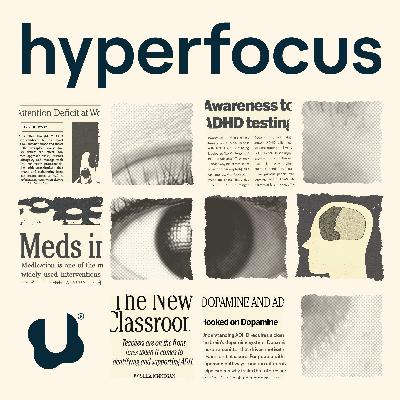
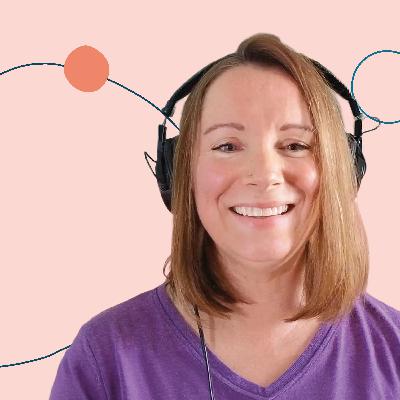
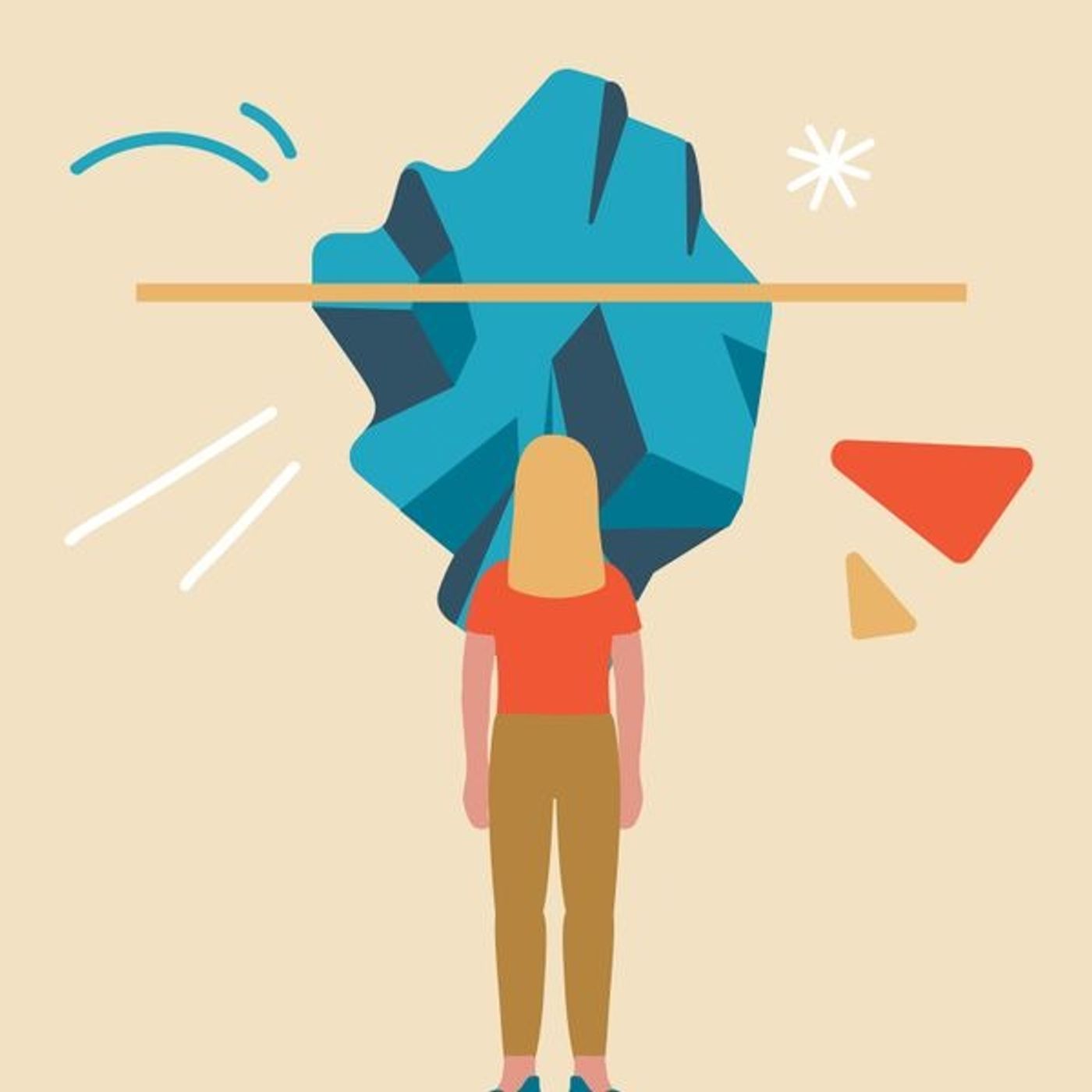

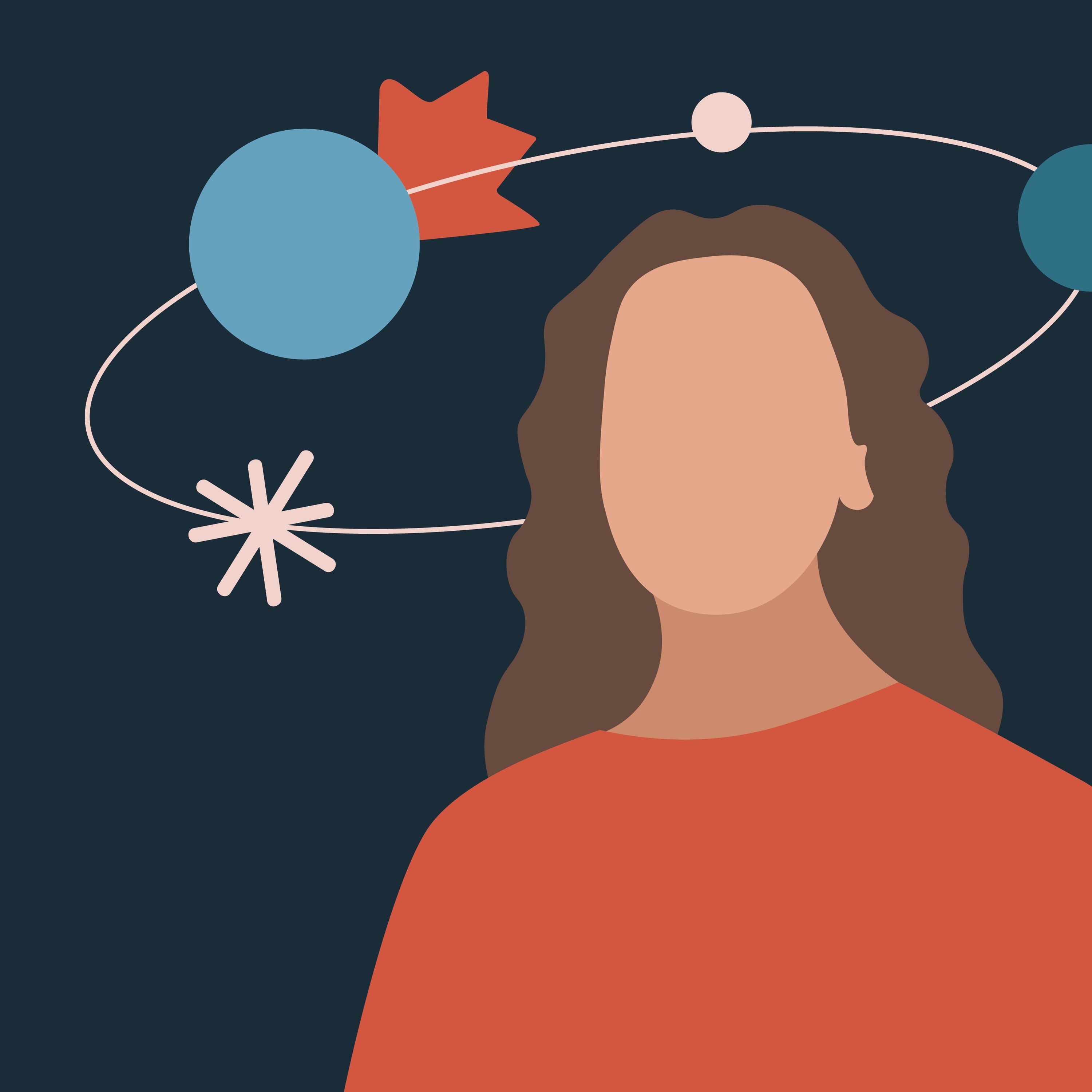



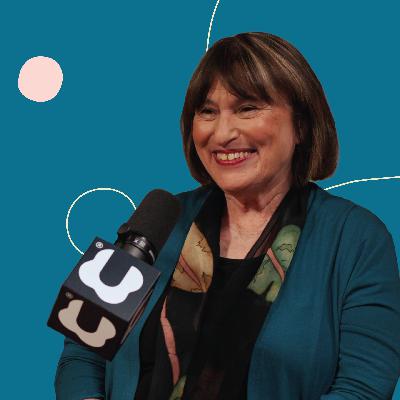
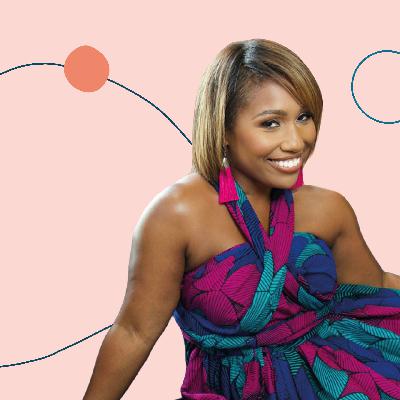
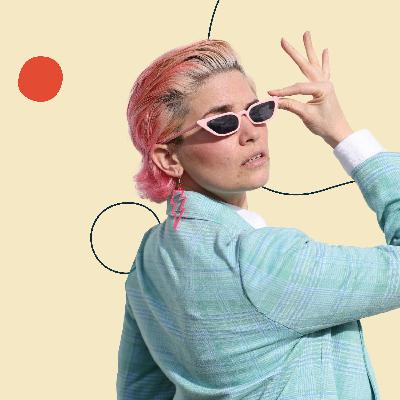
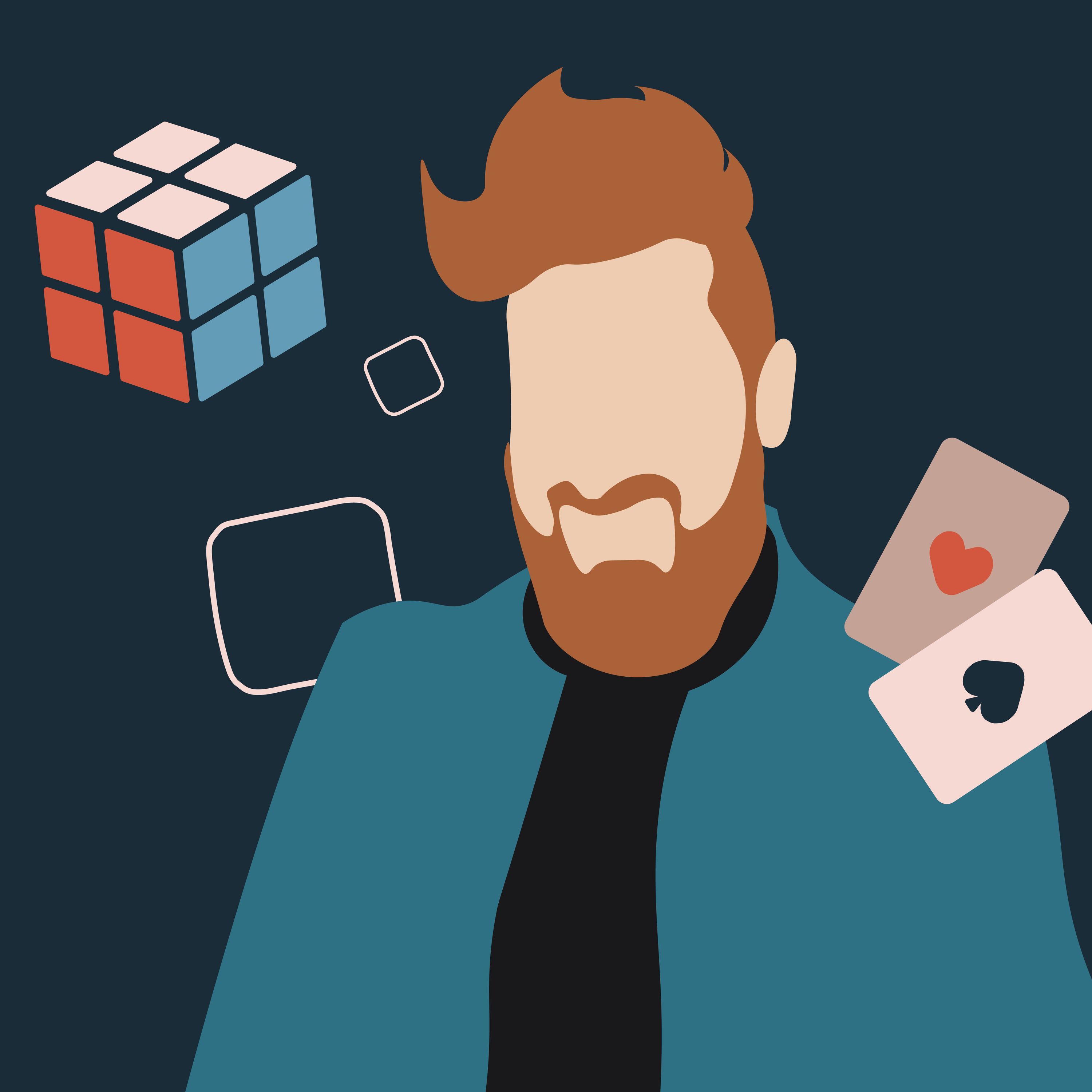
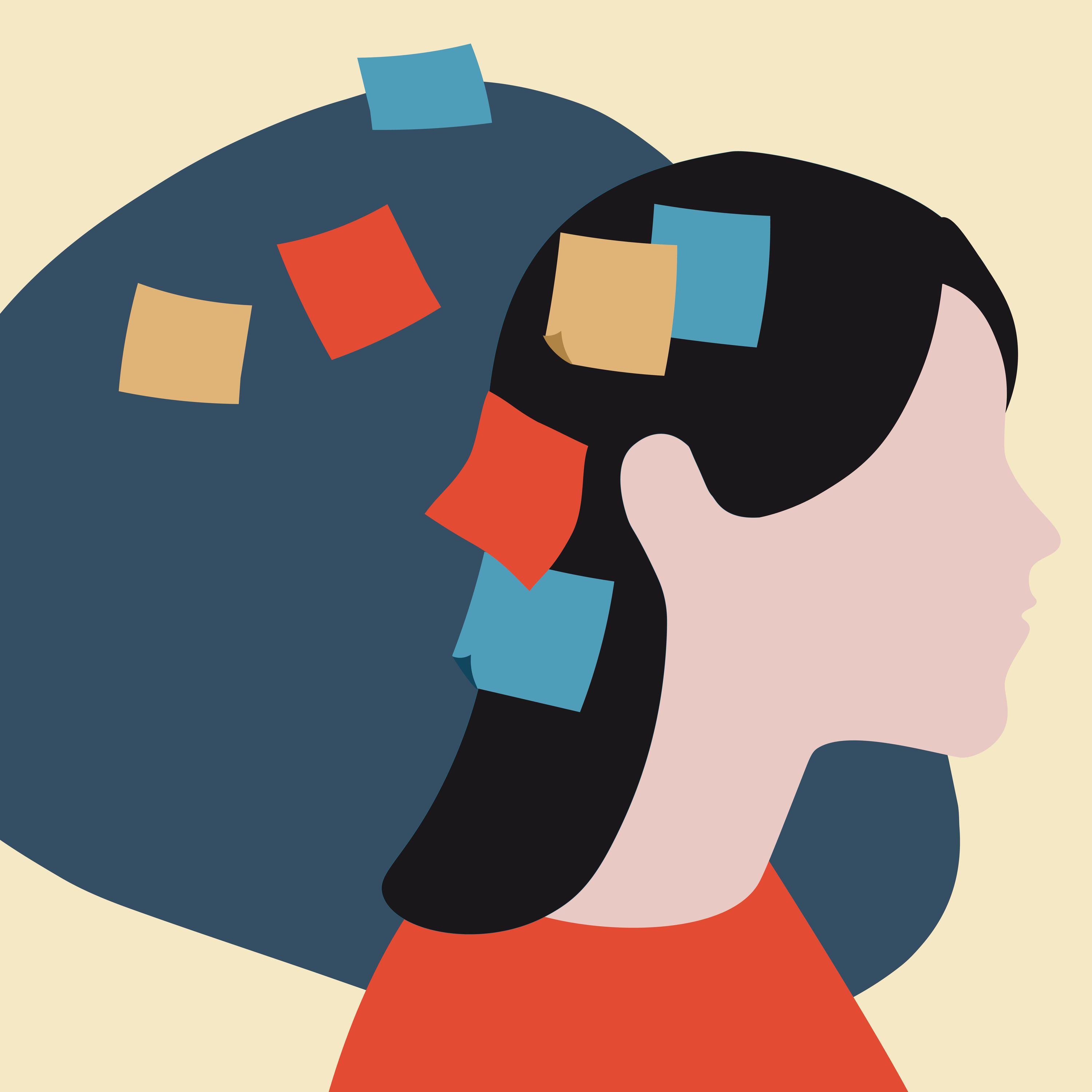


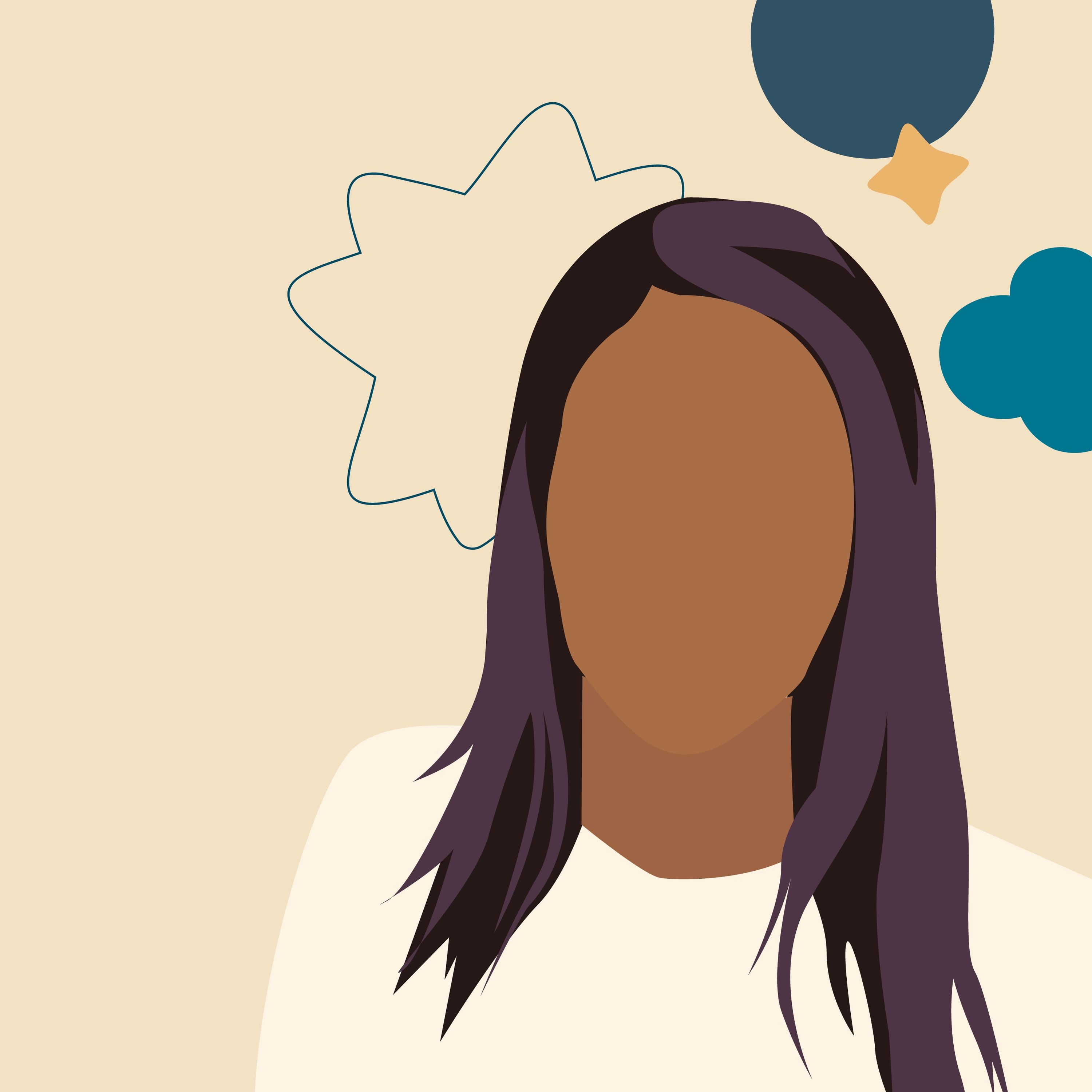





heard the Podcast, It was awesome. could relate to many of the things you guys mentioned. But there was no talk of medication. The listener might think there hasn't been any, or that it doesn't matter that much. While all of us know, If one could really get away without medication, we wouldn't have the "ADHA" tag on us in the first place.
OMG I never thought about why I hate doing the dishes so much, like would rather clean the toilet than do the dishes... it's a sensory thing. 🤯
This is the same exact struggles we went through with our now 7 y. o. daughter. She is the most creative, loving, quirky girl but can be super intense and difficult. She was diagnosed a year ago and is now on medication which has been a game changer.